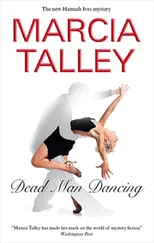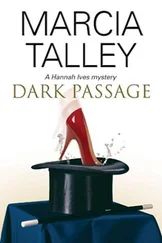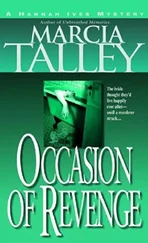I had to smile. At least we would be attending St Anne’s that morning, a real church, rather than experiencing the torture of sitting through one of Jack Donovan’s bowdlerized versions of Morning Prayer. As I slathered butter and a glop of Karen’s strawberry jam over my bread, I remembered a previous Sunday when gusts of wind had hurled sheets of rain furiously against the windowpanes. Jack had pronounced the day too unspeakably foul to consider going out in it, and ordered Amy to pass the word that our presence was required in the parlor, where we found Jack, balancing the Book of Common Prayer on his open hands. When all had assembled, even little Dex, Jack – heeding the admonition to ‘read with a loud voice’ – had stumbled over the hasts and doeths all the way to the end of the Apostle’s Creed where, good Baptist that he was, he skipped over the troublesome bit about the ‘holy Catholick Church.’ I had been amused rather than annoyed when Jack refused to pray for ‘the King’s majesty’ or to ‘bless the royal family,’ but fully half his captive congregation seethed in silent anger and for all I knew were seething still when – for some reason known only to Jack – the New Testament scripture lesson was taken from Luke 17, verses 7-10, the Parable of the Dutiful Servants. Would he thank the servant because he did what he was told to do? So you also, when you have done everything you were told to do, should say, ‘We are unworthy servants; we have only done our duty. ’
‘A beautiful day,’ I commented to the table at large. ‘Nice and sunny. I shall enjoy the walk to church.’
Melody shot me an as if glance. Judging from the cockeyed arrangement of curls on her head I gathered that Amy had been too preoccupied with worries over Drew to help Melody with her toilette. Thank goodness for mob caps and bonnets, I thought, fingering my own hack-handed do. They covered a multitude of sins.
At a quarter to nine, wrapped in our cloaks against the cooler weather, Jack Donovan and his little family, including several of his Dutiful Servants, began the Royal Progress toward St Anne’s where our (very) late benefactor, William Paca, had served as a vestryman from 1771 to 1773.
I attended St Katherine’s Episcopal Church in West Annapolis where my friend Eva Haberman served as rector, so I didn’t know whether the black-robed rector who greeted us when we passed through the door was a regular at St Anne’s or some ‘talent’ that LynxE had brought in for the day. Would we get to sit through an hour-long sermon delivered by a firebrand like Peter Muhlenberg from Woodstock, Virginia who, in 1776, threw off his clerical robes and stood before his startled parishioners wearing the full uniform of a Virginia militia officer declaring, ‘It is a time for war!’ Or would the service be more or less business as usual for the nineteenth Sunday after Pentecost?
Little had changed with the actual language of the Anglican service since the 1662 Book of Common Prayer was first published. Even Thomas Cranmer (who began working on the first version more than a century earlier) would have been right at home that day in Annapolis, Maryland. Priestly vestments hadn’t changed much since then, either, but gratefully, the Reverend Thomas Dyer kept them on as he delivered a long, rambling monologue based on the parable of the Good Samaritan.
Next to me, his arm often brushing mine, sat Jack, listening intently, nodding in agreement whenever Reverend Dyer made a point with which he agreed. Amy sat in the pew directly behind me, between the two Donovan children who had to be separated. They’d been squabbling over an origami frog that Gabe had folded out of a scrap of his father’s fine vellum writing paper.
‘Some among you may not appreciate the do-gooder interpretation of this parable,’ Dyer was saying when Amy tapped me lightly on the shoulder with her gloved hand, as we had arranged.
‘I don’t feel well, Mrs Ives,’ she whispered feebly. ‘I need to visit the necessary.’
‘Perhaps, then, it could better be characterized as the parable of a man who is saved by an enemy.’ Dyer droned on.
I patted Amy’s hand and whispered back, ‘Go ahead.’ I turned slightly, observing with an obvious show of motherly concern as Amy gathered her skirts close about her and eased past Gabe, out of the pew and into the aisle. She dipped her head in reverence to the cross, then spun around and drifted toward the rear of the church.
A sudden movement in front of an elaborately carved screen in the north transept drew my attention. Chad, Steadicam attached to his chest like a phantom twin, was making a move to follow.
I caught his eye, glared ferociously and mouthed ‘bathroom,’ which seemed to settle him down.
The service wore on, and Amy had yet to return. The final hymn – ‘O For a Closer Walk with God’ – was appropriate to our century, having been written by William Cowper in the 1700s and set to Caithness, a seventeenth-century tune. I noted this arcane fact as I paged nervously through the hymnal, trying to distract myself and not worry about Amy.
She had still not returned when, from the chancel steps, the Reverend Thomas Dyer raised a hand in blessing. ‘The grace of our Lord Jesus Christ, and the love of God, and the fellowship of the Holy Ghost, be with us all evermore. Amen.’
‘Amen,’ I repeated softly, desperate to leave, but the singing of the final hymn intervened.
As the last note of the organ died away, I tensed, ready to bolt for the door, but Jack looped my arm through his and escorted me down the aisle, greeting the congregation, nodding and smiling, paternally patting my hand where it lay in the crook of his arm, acting oh so lord of the manor.
In the narthex, I reclaimed my hand. ‘I need to check on Amy,’ I told him.
He looked puzzled. ‘Amy?’
‘In the necessary,’ I said, bobbing my head in the direction of the restroom. Jack hadn’t even noticed that my lady’s maid had gone.
‘Very well,’ he said. ‘We’ll wait outside.’
But Amy wasn’t in the restroom, and there was no sign that she had ever been there. I checked all the stalls. No discarded clothing, no telltale twists of toilet paper, no messages scrawled on the mirror with a bar of soap.
Amy Cornell, my lady’s maid, had disappeared.
‘I have no idea where Gabriel has gotten to this morning. It’s hard to keep track of him in a house this large. I worry that he’s spending too much time hanging out with Dex, the cook’s boy, and wonder if it’s appropriate for him to fraternize so much with the servants, and then I remember, this isn’t for real, Jack. When it’s over, we go back to Texas.’
Jack Donovan, Patriot
Founding Father was not going to be happy.
Neither was Jack Donovan.
I needed to think. I scrunched up my petticoats and backed into one of the stalls, sitting myself down on the toilet-seat lid and leaning back against the tank.
One of two things had happened. Either Amy had decided to leave the show voluntarily, or she hadn’t. In which case, Drew – or someone he’d hired – had kidnapped his wife. Unless Amy had done a one-eighty turn since our talk the previous morning, I figured her departure had not been by choice. But before I blew the whistle, I needed to be sure.
When I rejoined my family on the lawn in front of the church, they’d already attracted a crowd. Jack had gone all pater familias, gathering his sullen offspring around him, grinning broadly for the cameras. When he spotted me standing on the church steps, he waved me over. ‘Mrs Ives! Join us. I have good news.’
I dredged up a smile from somewhere and pasted it on for the benefit of our audience, then sashayed in their direction with my skirts sweeping the brick sidewalk. ‘Indeed, Mr Donovan. Pray tell, what news is that?’
Читать дальше












